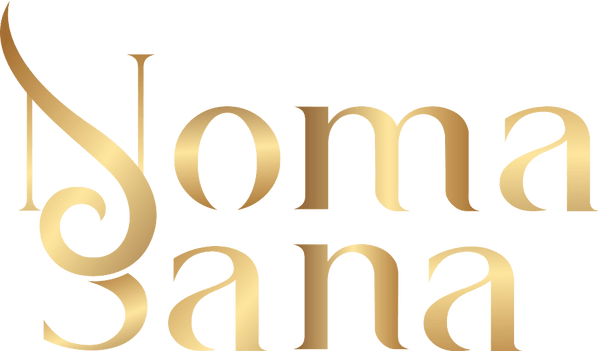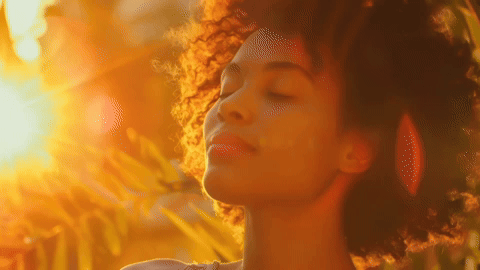Celebrate Your Natural Curls
Africans have long been referred to as the "children of the sun," because of our natural resilience to intense heat and sunlight. This innate tolerance to the sun and heat is deeply rooted in our biological makeup, manifesting itself in the color of our skin and the texture of our hair. While the melanin in our skin provides a protective shield against UV radiation, our curls serve as a shield to reduce how much sun rays get to our scalp, taking the hit for us.
The downside of having this hair texture is that the spiral-shaped strands contribute to its natural dryness. Unlike straight hair, which allows oils to easily travel down the root to the entire hair shaft, afro hair's tightly coiled structure makes it more challenging for natural oils to distribute evenly. This leaves the rest of the hair dry and causes our hair to require extra moisture to stay healthy.
Making Your Hair Even More Resilient
While it's true that African hair can generally tolerate more heat than other hair types, it's important not to overdo it. Excessive exposure to heat and the sun can still lead to damage and dryness, even in afro-textured hair. It can weaken the hair fibers and cause long-term harm. As such, you should take some steps to build a protective barrier on your hair before exposing it to sunlight or direct heat.
- Use heat protectants when using hot hair tools or when you’re in the sun. They are non-greasy, lightweight products that will help shield your hair from the effects of UV rays and high temperatures.
- Dry hair is more prone to sun and heat damage, so hydrate and moisturise your hair often. Drink a lot of water, and use hair care products like conditioners and butters that are rich in moisture.
- Use oils on your hair to seal in moisture and provide an additional layer of protection against heat damage and environmental stressors. Natural oils, such as Argan oil or castor oil are highly beneficial.
- Applying sunscreen specifically formulated for the hair and scalp can shield your hair from the harmful effects of UV radiation. SPF protection will help prevent dryness and colour fading, particularly during prolonged sun exposure.
Using Hot Tools
As we have previously discussed, African hair has a higher tolerance for heat than other hair types. While this is true, an issue arises when we deviate from the natural formation of our hair, straightening or changing its curl pattern with hot tools. While this shouldn’t be a problem, many hair styling tools on the market are engineered to remove much-needed moisture from the hair. This is why you should use tools that are specifically designed with your hair type in mind, like the Noma Sana Silk Tress Afro Hair Straightener and the Noma Sana Silk Tress Curler; they get the job done without damaging your hair.
When you need to style your hair, here’s what you should do:
- Ensure your hair is thoroughly moisturised and conditioned before applying heat.
- Trim your weak ends to avoid further damage to the hair shaft.
- Apply a heat protectant to your hair.
- Use lower heat settings on your styling tools. Good tools like ours should let you control the heat.
By implementing these practices, you can protect your hair and maintain its health and integrity while still achieving your desired hairstyle through heat

